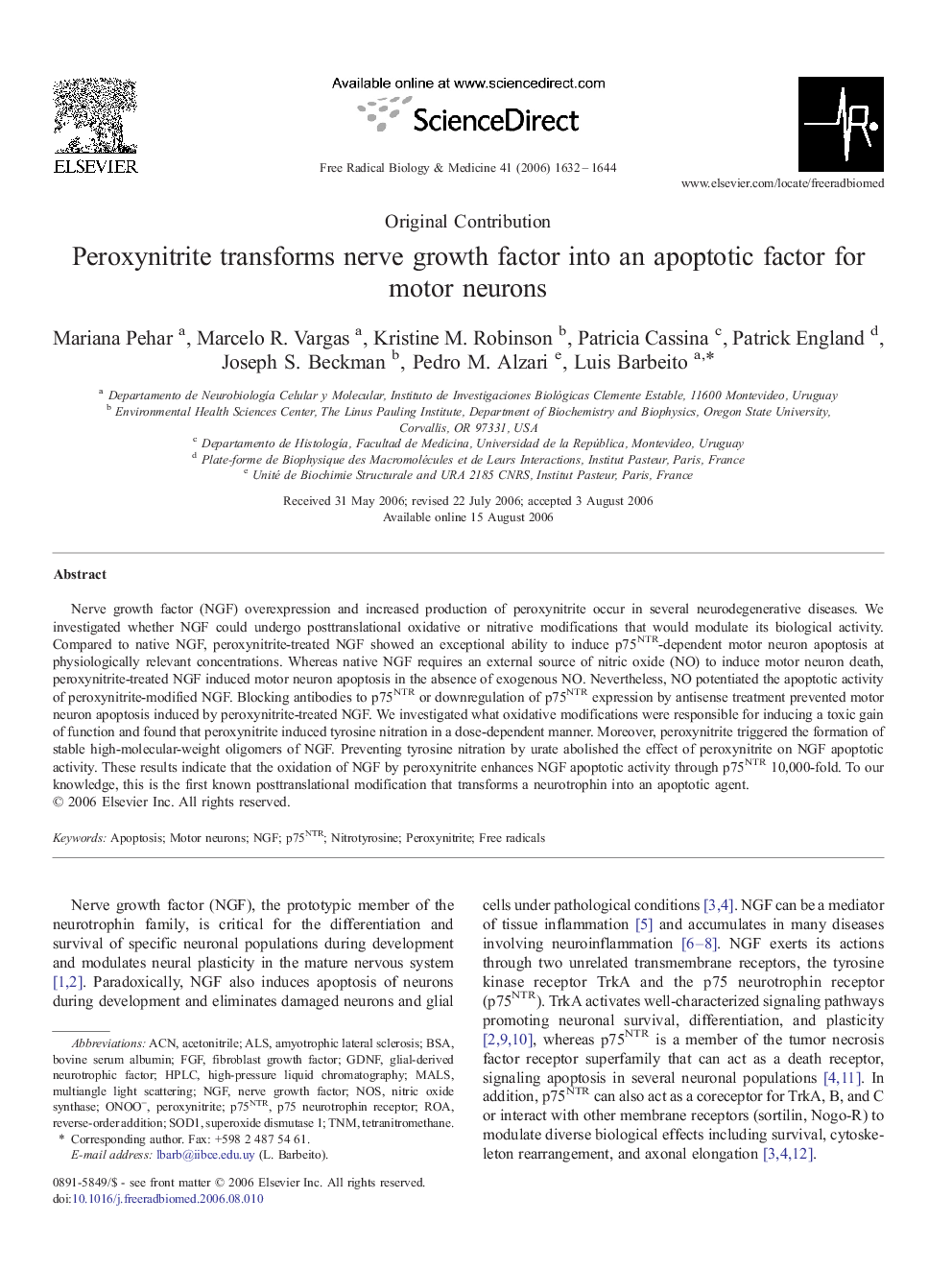| Article ID | Journal | Published Year | Pages | File Type |
|---|---|---|---|---|
| 1911773 | Free Radical Biology and Medicine | 2006 | 13 Pages |
Abstract
Nerve growth factor (NGF) overexpression and increased production of peroxynitrite occur in several neurodegenerative diseases. We investigated whether NGF could undergo posttranslational oxidative or nitrative modifications that would modulate its biological activity. Compared to native NGF, peroxynitrite-treated NGF showed an exceptional ability to induce p75NTR-dependent motor neuron apoptosis at physiologically relevant concentrations. Whereas native NGF requires an external source of nitric oxide (NO) to induce motor neuron death, peroxynitrite-treated NGF induced motor neuron apoptosis in the absence of exogenous NO. Nevertheless, NO potentiated the apoptotic activity of peroxynitrite-modified NGF. Blocking antibodies to p75NTR or downregulation of p75NTR expression by antisense treatment prevented motor neuron apoptosis induced by peroxynitrite-treated NGF. We investigated what oxidative modifications were responsible for inducing a toxic gain of function and found that peroxynitrite induced tyrosine nitration in a dose-dependent manner. Moreover, peroxynitrite triggered the formation of stable high-molecular-weight oligomers of NGF. Preventing tyrosine nitration by urate abolished the effect of peroxynitrite on NGF apoptotic activity. These results indicate that the oxidation of NGF by peroxynitrite enhances NGF apoptotic activity through p75NTR 10,000-fold. To our knowledge, this is the first known posttranslational modification that transforms a neurotrophin into an apoptotic agent.
Keywords
TNMROASOD1p75NTRGDNFNGFACNFGFNOSBSAONOO−bovine serum albuminAcetonitrileamyotrophic lateral sclerosisALStetranitromethaneApoptosisFree radicalssuperoxide dismutase 1nerve growth factorfibroblast growth factorglial-derived neurotrophic factorMALSmotor neuronsnitrotyrosinenitric oxide synthaseMultiangle light scatteringPeroxynitritehigh-pressure liquid chromatographyHPLCp75 neurotrophin receptor
Related Topics
Life Sciences
Biochemistry, Genetics and Molecular Biology
Ageing
Authors
Mariana Pehar, Marcelo R. Vargas, Kristine M. Robinson, Patricia Cassina, Patrick England, Joseph S. Beckman, Pedro M. Alzari, Luis Barbeito,
